
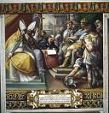
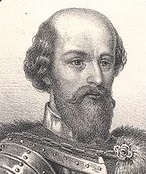
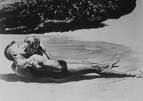
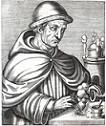

1310 On May 12 54 Knights Templar are burned in France as the Order of Knights Templar is ruthlessly extinguished by Philip IV of France allied with the Church; 115 are eventually burned after their feet are roasted over a fire to make them confess; those lucky enough to survive end up as street beggars wearing their charred feet around their necks. On Aug. 27 Charles Robert of Anjou is crowned as king Charles I Robert (1288-1342) of Hungary, founding the Hungarian Anjou Dynasty, known for its Western influences and Italian chivalry, with capital at Visegrad N of Budapest on the right bank of the Danube River in the Danube Bend; he spends the next 15 years subduing the many "little kings" of Hungary, incl. Matthew III Csak (1260-1321) and Ladislas of Transylvania. In Nov. at the urging of Avignon Pope Clement V and the Ghibellines, German king (since 1308) Henry VII of Luxembourg (1275-1313) invades Italy with 5K troops and restores order in Milan, Cremona, and Rome, intending to reconcile the Ghibellines and Guelphs; too bad, the Ghibellines have other ideas, esp. Cangrande (It. "big dog") I della Scala (1291-1329) (patron of Dante) of Verona, and White Guelph Dante Alighieri cheers Henry VII on from the sidelines as the new Charlemagne, exhorting him to retake Florence from the hated Black Guelphs so he can return from exile, but making the mistake of going overboard and dissing his personal enemies, which backfires when Henry VII dies in 1313 and the White Guelphs are pardoned, but he is specially exempted for personal invective-filled letters to Henry VII; meanwhile he writes the first two books of his "Divine Comedy". The Knights of St. John (Hospitalers) finish conquering Rhodes, becoming the Knights of Rhodes, valiantly resisting expulsion until 1522 while engaging in a naval crusade, which the Ottomans and Venetians regard as pure high-seas piracy run by pirates bearing crosses. Venice establishes a Council of Ten to rule the city, which does it secretly and ruthlessly. The Scots stick it up the English king's butt while he moans and groans, until the English barons take over as saddle boss? Edward II leads an army into Scotland, causing Robert I to withdraw to the highlands, then harass their withdrawal after they give up and return to England, then have a field day picking off English garrisons as the holdout Scottish barons switch allegiances to him, capturing the castle and town of Lanark; the Scottish clergy recognize Robert I as king, while the ooh-chucka-lucka English barons, led by Edward II's cousin Thomas Plantagenet, 2nd Earl of Lancaster (1277-1322) bring armed followers to a baronial parliament and force Edward to appoint 21 lay and ecclesiastical magnates, the Lord Ordainers from among themselves to limit his powers and propose reform ordinances - eight beauties and eight geeks? Al-Nasir Muhammad reascends the Mamluk throne (1299-1309) for the last time, stabilizing the empire for three decades (until 1341). The Catholic Church imposes taxes on the Jews in Rome, allegedly for their protection from violence. Muslims from Mali in W Africa sent by Malian king Abu Bakar (Bakari) (Bari II) sail W, and in 1312 reach the Gulf of Mexico and explore up the Mississippi River? A chartered insurance co. opens in Bruges. Ars Nova music begins to replace Ars Antiqua as the style of France (ends 1377), known for strongly contrapuntal style and greater independence of rhythm, and even worse, the mixing of the sacred and secular; French composer Philippe de Vitry (1291-1361) coins the term "Ars Nova" in 1322. Architecture: The Doge's Palace in Venice is begun (finished in 1340). Inventions: In this cent. gunpowder becomes widely used in siege machines after German Franciscan monk alchemist Berthold Schwartz (Berthold der Schwarze) (Berthold the Black) (Konstantin Anklitzen) of Freiburg allegedly discovers the formula between 1313-53; the knight in armor in battle starts to become obsolete during this cent; rockets find their way into European arsenals in this cent. Art: Giotto (1267-1337), The Peruzzi Altarpiece (1310-15). Nonfiction: The Yalkut Shimoni, an aggadic compilation of the books of the Hebrew Bible filled with interpretations of various rabbis can be traced to this date; it was really written in the 11th-12th cents.?; "The year the Messiah will arrive when all the countries of the world will irritate one another and undermine with war. The lord of Persia irritates the King of Arabia with war. The King of Arabia goes to Edom for counsel. At that point the King of Persia wrecks the world. Also, all the countries of the world start to frenzy and are perplexed, and Israel too is anxious regarding how to safeguard from this. God then says to them 'Don’t fear for everything that I have done is for your advantage, to devastate the underhandedness of the kingdom of Edom and kill detestables from this world so that the Messiah can come, your season of recovery is presently.'" Births: Polish Piast king (last) (1333-70) Casimir III the Great (d. 1370) on Apr. 30 in Kowal; son of Wladyslaw I the Elbow-High and Hedwig of Kalisz. Spanish king (1312-50) Alfonso (Alphonso) XI of Castile (d. 1350). English Hundred Years' War soldier-politician-diplomat Henry of Grosmont, 4th Earl of Lancaster and Leicester and 1st Duke of Lancaster (d. 1361) in Grosmont Castle, Monmouthshire; son of Henry, 3rd earl of Lancaster (1281-1345) and Maud Chaworth; founding member of the Order of the Garter; created duke in 1351. French Benedectine monk and Avignon pope #6 (1362-70) (Blessed) Urban V (Guillaume de Grimoard) (d. 1370) in Grizac, Languedoc; feast day: Dec. 19. French "Le Viandier" chef (to Philip VI, Charles V, and Charles VI) (first prof. French master chef) Taillevent (Fr. "slicewind") (Guillaume Tirel) (d. 1395) in Point-Audemer. Deaths: Spanish rabbi Shlomo ben Aderet (b. 1235) in Barcelona. Italian alchemist Arnold de Villanova (b. 1238) near Genoa; dies at sea en route to visit sick Pope Clement V. Muslim astronomer-mathematician Shams al-Din al-Samarqandi (b. 1250); leaves Synopsis of Astronomy and a star catalog for 1276-7.
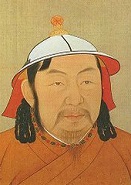
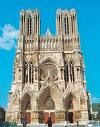

1311 On Jan. 27 emperor #3 (since June 21, 1307) Yuan Wu Zong (b. 1281) dies, and on Apr. 7 his brother Ayrubarwada becomes Yuan Ren Zong (Buyantu Khan) (Blessed Khan) (1285-1320), Mongol Yuan emperor #4 of China (until Mar. 1, 1320), becoming the first to actively support adoption of Confucian principles into the admin. system incl. the civil service exams. On Feb. 7 German king Henry VII of Luxembourg's son Count John of Luxembourg (Bohemia) (1296-1346) is crowned king of Bohemia in Prague, which had been in anarchy since the death of his wife's brother Wenceslas III, bringing the Bohemian throne to the house of Luxembourg (until 1489). On Mar. 15 after hiring them and refusing to pay them, the Frankish Duchy of Athens under Duke Walter V of Brienne (b. 1278) is defeated by the Co. of Catalan at the Battle of Cephissus (Orchomenus) (Halmyros) in Boeotia, and Walter V is KIA; they divide the wives of the Frenchmen between them and settle down as the new Aragonese Duchy of Athens (1311-88). In Mar. king (since 1307) Hkun Law (b. 1274) is assassinated by his brother-in-law, who makes his son Saw O (1283-1323) Hanthawaddy king #3 of Burma (until sept. 1323). In Apr. after Padua, master of Vincenza since the demise of Ezzelino III da Romano in the 1250s rebels against Henry VII, Cangrande della Scala and his brother Alboino della Scala lead an imperial army that liberates Vicenza from their rule, then sieges Brescia in May after the Guelphs seize control, causing it to submit on Sept. 16, after which Henry VII triumphantly enters at the head of 300 knights led by Cangrande; meanwhile Alboino dies on Nov. 29, leaving 20-y.-o. Cangrande as sole ruler of Verona. Don't begin the Beguines? In Oct. the Council (Synod) of Vienne (ends 1312), called by Pope Clement V denounces the Beguines (retreats for widowed Crusaders and other women, who take no vows and care for the sick and poor) (founded 1180) as heretical, and orders their suppression; a number of Beguine communities survive to modern times; Pope Clement V declares the belief in the right to usury to be heresy, and abolishes all secular legislation allowing it. Spanish king of Majorca (since 1276) James II (b. 1243) dies after suppressing the Knights Templar and seizing its tithes, and his 2nd son Sancho I "the Peaceful" (1274-1324) becomes king of Majorca, count of Roussillon and Cerdanya, and Lord of Montpellier (until 1324), going on to extort money from the Jews to built a navy - Admiral Hyman Rickover jokes here? The 21 Lords Ordainers draw up the Ordinances of 1311 in 41 articles to try to rein-in their fag, er, king and give the barons a larger share in govt., which are confirmed by Parliament (in which burgesses and knights sit) (ends 1322); the king is required to have baronial consent through Parliament to declare war, make royal appointments (no more fags?), depart from the real. Paper money is discontinued entirely in China. Black Muslim Mali King Abubakari II hires Arab ship builders from Lake Chad to build a fleet, then sails down the Senegal River and crosses the pond (Atlantic), landing in Panama, then continues S, settling in the Inca Empire? - the Incans, seeing black men arrive from the east, figure that white men must not be far behind? Ghibelline condottiere Uguccione della Faggiuola (1250-1319) becomes HRE Henry VII's imperial vicar in Genoa, and ruler of Pisa in 1313, conquering Lucca in 1314 (until 1316). Architecture: Giovanni Pisano finishes the pulpit in Pisa Cathedral (begun 1301). The facade of Notre Dame Cathedral in Reims (Rheims) (begun 1211) is finished; the whole structure isn't finished until 1430. Art: Giotto (1267-1337), The Madonna in Glory. Births: English queen consort Philippa of Hainault (d. 1369) on June 24 in Valenciennes; daughter of William I of Hainault (1286-1337) and Jeanne de Valois; wife (1328-) of Edward III (1312-77). Deaths: Persian Muslim Sufi astronomer Qub al-Din al-Shirazi (b. 1236). Thai Lan Na king #1 (1296-1311) Mangrai (b. 1238) in Chiang Mai (struck by lightning during a thunderstorm in the city market). French count of Brienne (1296-1311) Walter V (b. 1275) on Mar. 15 in Greece (KIA in the Battle of Orchomenos/Halmyros). Spanish king of Majorca (1276-1311) James II (b. 1243) on May 29. Burmese king (1307-11) Hkun Law (b. 1274) in Mar. near Mawlamyaing (assassinated). French countess (of Evreux) Marguerite d'Artois (b. 1285) in Paris.
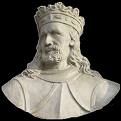



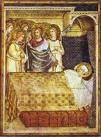
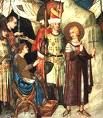
1312 In Feb. Cangrande della Scala plays both against the middle by accepting the election of the ruling council of Padua as imperial vicar of Vicenza; too bad, Padua was playing him for a patsy and begins attacking Vicenza and Verona, beginning an 18-mo. war.; meanwhile Cangrande invites Dante Alighieri to Verona, where he stays until 1318, earning him immortal praise in his "Divine Comedy" (Canto 17:70-93). Just beat it, beat it, beat it? In Feb. Philip IV appears before the Council of Vienne and vehemently demands the suppression of the Knights Templar; on Mar. 22 Pope Clement's bull Vox Clamantis dissolves them, and transfers their property to the Hospitalers, except in Spain and France, where the crown keeps it; Philip makes the Templar treasury a section of his royal finance admin.; excommunicated Robert I the Bruce welcomes the Templars to Scotland; Dinis I of Portugal protects the Templars in his territory, and absorbs their holdings into his new Order of Christ; on Apr. 4 the Council of Vienne proclaims a new Crusade. On June 19 King Edward II's bud Piers Gaveston (b. 1284), 1st earl of Cornholio, er, Cornwall is kidnapped and beheaded on Blacklow Hill near Warwick (owned by the earl of Lancaster) after the nobles try and fail 3x to have him banished - he could never leave his friend's behind? On June 29 German king (since 1308) Henry VII of Luxembourg (b. 1275) is crowned HRE (until 1313) in Rome, after which he sieges Florence and defeats the Black Guelphs; too bad, he dies before exiled Dante can return (either that or the White Guelphs cover up his presence after they turn against him too?). On Aug. 27 duke (since Nov. 18, 1305) Arthur II (b. 1261) dies, and his son (by 1st wife Mary of Limoges) John (Jean) (Yann) III the Good (1286-1341) becomes duke of Brittany (until Apr. 30, 1341). On Sept. 7 king (since Apr. 25, 1295) Ferdinand IV (b. 1285) dies suddenly in his tent in Jaen while preparing to raid Granada, and next Sept. 7 his infant son Alfonso XI (the Avenger) (1311-50) becomes king of Castile and Leon (until Mar. 27, 1350). Ecumenical church council city Lyons is incorporated into France under the terms of the Treaty of Vienne. Matteo I Magno Visconti (1250-1322) is designated imperial vicar of Milan, founding the Visconti Dynasty, known for their Biscione ("Viper") Coat of Arms (a serpent giving birth to a child via its mouth), who go on to rule with an iron hand while expanding through N Italy, incl. Genoa (until 1447). On Oct. 29 the Treaty of Inverness between Norway and Scotland recognizes Robert I of Scotland, who creates his brother Edward the Bruce as earl of Carrick and lord of Galloway, and makes him one of his key generals, along with Sir James "Black" Douglas (1286-1330) and Thomas Randolph, 1st Earl of Moray (-1332), leading them into N England to pillage and burn in order to force Edward II to make peace and give up. Mansa Kankan Musa (-1337) (Emperor Kankan Musa) becomes ruler (until 1337) of Mali, an area of West Africa on the Niger River, incl. far-out Timbuktu, encouraging the growth of Islam; under him the M-loving Mali Empire reaches its height. Genoese mariners rediscover the 7 major and 6 minor Canary Islands, named for the large dogs found there (Latin "canis"). Art: Simone Martini (1280-1344) begins painting frescoes in the Chapel of St. Martin in the lower church of St. Francis in Assisi (until 1317), incl. St. Martin's Dream and St. Martin Renouncing the Sword. Births: French Capetian queen of Navarre (1328-49) Joan II (d. 1349) on Jan. 28; only daughter of Louis X and 1st wife Margaret of Burgundy; half-sister of John I. English king (1327-77) Edward III (d. 1377) on Nov. 13 in Windsor Castle; son of Edward II (1284-1327) and Isabella of France (1295-1358) - daddy swings both ways sometimes? Scottish heroine "Black" Agnes, Countess of Dunbar and March (d. 1369); daughter of Earl Thomas Randolph of Moray (nephew of Robert I) and Isabel Stewart. Deaths: French duke of Brittany (1305-12) Arthur II (b. 1261) on Aug. 27 in Chateau de L'Isle. English royal cornholio Piers Gaveston (b. 1284) on June 19 on Blacklow Hill (murdered). Spanish king of Castile (1295-1312) Ferdinand IV (b. 1285) on Sept. 7 in Jaen.



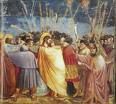

1313 On Feb. 7 Robert I the Bruce begins a campaign to attack the English castle network in the Scottish Lowlands, and captures Dumfries, then retakes English-held (since 1296) Edinburgh Castle on Mar. 14 after his nephew Thomas Randolph, 1st Earl of Moray (-1332) uses a secret path up the apparently impregnable rock on which it stands, leaving only Stirling Castle in English hands; Bruce wows the people by personally wading across the moat around Perth and being first to scale the city walls; in Apr. Fruit of the Loom king John Balliol (b. 1249) dies in Helicourt-en-Vimeau, Picardy, France; on May 18 Robert lands on the Isle of Man, then after receiving the good news about Balliol in the fall he declares a 1-year deadline for the remaining Scottish traitors to submit or find they don't have a friend in the land. On Feb. 15 after the young noblemen of Liege try a coup and are defeated by the commoners, they sign the Treaty of Angleur. On May 11 Canterbury archbishop(since Sept. 1294) Robert Winchelsey (b. 1245) dies, and there is no successor for three years. On Aug. 24 after the pope allies with Philip IV of France against HRE (since 1312) Henry VII of Luxembourg (b. 1275) to save Naples from him, and the Lombard cities withdraw their support, surrounded Henry VII dies of malaria in Buonconvento near Siena while en route with Venetian allies to attack Robert of Naples, and on Nov. 9 Bavarian duke (1294-1301) Louis IV the Bavarian (1282-1347) defeats his Hapsburg cousin Duke Frederick III the Handsome (the Fair) (1289-1330) of Germany (AKA Duke Frederick I of Austria) in the Battle of Gammelsdorf, forcing him to renounce tutelage over the young dukes of Lower Bavaria, Henry XIV, Otto IV, and Henry XV; although raised together and friends till now, when the Luxembourg party of the prince electors passes over Henry VII's son John of Luxembourg (1296-1346) as too young, then chooses Louis IV the Bavarian over Frederick III the Handsome, the latter two become bitter enemies; meanwhile Henry VII's death frees Cangrande della Scala to concentrate on his war against Padua and build up his army. Uzbeg (Ozbeg) (1282-1341) becomes khan of the Golden Horde (until 1341), bringing it to its zenith. Turkoman leader Saruhan Bey (1300-46) conquers Manisa (Magnesia), founding the Saruhan Dynasty in W Anatolia (ends 1389). Architecture: Thomas Plantagenet, 2nd earl of Lancaster begins massive Dunstanburgh Castle in Northumberland, becoming its biggest. French minister of Philip IV the Fair (since 1304) Enguerrand de Marigny (1260-1315) founds the collegiate church of Notre Dame d'Ecouis near Rouen. Sir William de Norwico (Norwich) orders a stone wall built to screen the privy outlets of the privy room near the banquet table of the Tower of London (home of the royal family) from public view. Inventions: German Franciscan Grey Friar Berthold Schwartz (Schwarz) (Berthold the Black) (real name Konstantin Anklitzen) of Freiburg invents gunpowder about this time? - the original May the Schwartz Be With You? Art: Giotto (1267-1337), The Kiss of Judas (1305-13). Births: Japanese Ashikaga pretender emperor #1 (1331-3) Kogon (Kazuhito) (d. 1364) on Aug. 1; 3rd son of Go-Fushimi (1288-1336). Italian patriot-political reformer Cola di Rienzi (Rienzo) (d. 1354) in Rome. Italian jurist Bartolus de Saxoferrato (d. 1357) in Venatura (near Sassoferrato), Marche; educated at the U. of Perugia, and U. of Bologna. Italian novelist and (with Petrarch) the earliest humanist Giovanni Boccaccio (d. 1375) in Florence (or Certaldo, in Florentine territory) in the summer; illegitimate son of prosperous merchant banker Boccaccio di Chellino (dir. of the Compagnia dei Bardi) and a French noblewoman. Deaths: German poet Hugo von Trimberg (b. 1230); leaves The Solsequium (moral examples), Registrum Multorum Auctorum (verse history of lit.), and Der Renner (moral poem - his only work to survive to modern times). German friar-scientist Witelo (b. 1230). English archbishop of Canterbury (1294-1313) Robert Winchelsey (b. 1245) on May 11 in Otford. Scottish king (1292-6) John de Balliol (b. 1249) in Apr. in Helicourt-en-Vimeau, Picardy, France. German king (1308-13) and HRE (1312-3) Henry VII of Luxembourg (b. 1275) on Aug. 24 in Buonconvento (near Siena), Italy.
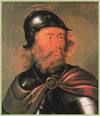



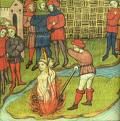
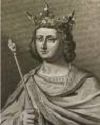



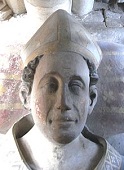
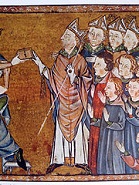

1314 Pop. of Paris: 200K; France: 22M. On Mar. 18 after years of fruitless attempts to torture out the whereabouts of their treasure, 39 more Knights Templar are burned in Paris, incl. grandmaster #23 (last) Jacques de Molay (Molai) (b. 1244) and his deputy Geoffroi de Charnay (Charney) (Charny) (b. 1251), preceptor of Normandy; they are slow-roasted over smokeless charcoal, taking hours to die?; in the flames de Molay (who had been tortured into a confession of heresy and given life in priz earlier that day, only to immediately retract it and ordered burned) protests the innocence of the Templar Order, and calls down Philip IV and Pope Clement V for their injustices, launching the Templar (De Molay) Curse, and sure enough they both croak later this year, popey going first in only 33 days? On Apr. 20 Pope (since June 5, 1305) Clement V (b. 1264) dies, and the papacy remains vacant for more than two years - read your Dante and grab an iced half-latte? On June 21 after gathering a 16K-man army (boycotted by several English earls), Edward II relieves the siege of Edinburgh, then crosses the Bannockburn River after hearing that Stirling Castle, the last major English stronghold in Scotland had agreed to surrender if not relieved by June 24; on June 23 after Robert I chooses the ground, the Battle of Bannockburn sees Scottish king (since 1306) Robert I the Bruce (1274-1329) and an underarmed force of 8K (no Knights Templars led by Sir William "the Crusader" Sinclair of Roslin (1283-30)?) carrying the relics of St. Columba wait for the English force of 16K to approach the woods S of the castle, and surprise them in a marshy field next to the Bannockburn River 2 mi. S of Sterling, using the schiltron to advantage to rout the cavalry vanguard; after the English start out with a charge by the knights, Robert I wows his men and becomes a legend by boning, er, braining English knight Baron Henry de Bohun with a battle-axe after being spotted out in front and being charged, splitting his skull from crown to chin, freaking his brother Humphrey de Bohun, 4th Earl of Hereford (1276-1322), constable of England, who was kept from leading the English army in favor of inept Gilbert de Clare, 8th Earl of Gloucester (b. 1291), who is KIA, ending the male line of the illustrious de Clare family in England, and turning his three sisters into rich debs, Piers Gaveston marrying Margaret de Clare to get her dough and pass for straight, and Hugh le Despenser doing ditto with Eleanor de Queer, er, Clare?; on June 24 (Midsummer's Day) (Feast of the Nativity of St. John) the Scots surprise the English again, attacking them from the woods before they can get out of the marshland into firm open ground, and putting them to flight, causing many to drown in the muck, then chasing fleeing Edward II and despoiling his lavish baggage train; the kilted, bearded, erin-go-braghing Scots then take Stirling Castle and go on to kick the last English butt out of their country, winning Scotland its independence for the next three cents., although Edward II never formally recognizes the Bruce as king; one of the earliest battles at which the skirl of the bagpipes is heard; imprisoned Scottish bishop Robert Wishart is exchanged for the earl of Hertford, and Robert I's wife and daughter are exchanged for English POWs; James "Black" Douglas is knighted by Bruce on the battlefield; Angus (Aonghus) Og Mac Domhnaill, Lord of Islay (-1316), son of Angus Mor and head of Clan Donald (McDonald) receives lands from Robert I for his part in the V, helping his clan pass up rival Clan MacDougall; in Nov. a parliament in Cambuskenneth Abbey near Bannockburn forfeits the lands of Robert I's remaining Anglo-Scottish opponents (supporters of Balliol and Comyn), giving him loot with which to reward his loyal supporters, and creating the "disinherited" class of Scottish nobles, who nurse grudges; Robert I creates the Order of Heridom and the Brothers of the Rosy Cross (later Kilwinning) with lands in Argyllshire; Robert I protects the Templar Order in Scotland, with Templar land administered by the Hospitalers, and the Templar fleet partially integrated into the Scottish fleet; after wiping off his bloody battle-axe, Robert I leads his forces into N England again to pillage and search for loot (until 1315); by now Edward II's inept nephew Duke Thomas of Lancaster, 2nd Earl of Lancaster (1277-1322) virtually rules free-falling England (until 1318), offering feeble resistance to Scottish raids and civil disorders; in June (last Sat.) the annual Ceres Highland Games in Scotland are founded; the Scots win their freedom for almost 400 years (until 1707) - keep those stone and log-throwing skills alive? On Sept. 17 after Cangrande della Scala pisses them off by burning crops and towns in Paduan territory, a large Paduan army under Ponzino de' Ponzini attacks Vincenza, causing Cangrande to jump on his horse in Verona and ride like a greyound to Vicenza, where he catches them still in the suburbs and personally leads a rout standing in his stirrups swinging a mace "as fire fanned by the wind devours stubble" (Albertino Mussato), with his cousin Federico della Scala helping him and becoming a hero, then trying to seize power in 1325 and getting banished; in Oct. a peace treaty is signed recognizing his supremacy over Vicenza, and his hell-for-leather ride becomes legendary, along with his magnanimous treatment of POWs. In Sept. Philip IV's minister (since 1304) Enguerrand de Marigny (1260-1315) negotiates a peace with the Flemings, pissing-off the princes of the blood, who are eager to fight them; after Philip IV dies he is arrested by order of Louis X at the instigation of Philip IV's brother Charles of Valois for bribery, and beats the charge, only to be framed on sorcery and hanged next Apr. 30 in Montfaucon. The original Iron Man Triatholon? On Nov. 25 after a double election, where the archbishop of Mainz casts four of the seven votes, Louis (Ludwig) IV the Bavarian (1282-1347), head of the House of Wittelsbach (founded 1119) is crowned king of Germany and HRE in Bonn by the archbishop of Cologne instead of the usual site of Aachen, and begins an 8-year civil war over the imperial title with Frederick III the Handsome (the Fair) (1289-1330), who is supported by his brother Duke Leopold I of Austria (1290-1326) and the Avignonese popes; during Louis IV's reign the imperial chancery first adopts German instead of Latin for use in official documents - jawhol, you spaghetti-slingers? On Nov. 29 after the loot from the Jews and Templars, as well as all the overtaxation measures he has instituted still don't bail the treasury out of its war debts, causing him to call another estates-gen., which bickers and doesn't cough up any more moolah, king (since Oct. 5, 1285) Philip IV (b. 1268) dies, and his son Jeanne of Navarre becomes Capetian king #12 Louis X (the Quarrelsome) (the Quarreler) (the Stubborn) (1289-1316) (until June 5, 1316); his reign is dominated by his uncle Charles of Valois, while Philip IV's other sons Philip V (1294-1322) and Charles IV (1294-1328) wait in line; a plan to steal Gascony from the weak English king is put in motion, while a reaction against the monarchy forces concessions; John Tannere (Canne), who claims to be the son of Edward I is hanged, drawn, and quartered as a traitor - did it look like a boa constrictor? Konya, capital of the kaput Seljuk sultanate of Rome is captured by the principality of Karaman, who make it their capital and start claiming themselves as the rightful heirs. Wedem Arad dies, and Amda Seyon (Amde Tsiyon) ("Pillar of Zion") I (-1344), AKA Gebre Mesqel ("Slave of the Cross") becomes Solomonic emperor of Ethiopia (until 1344), going on to expand Ethiopian terrority by conquering Muslim borderlands, and spreading the Christian cross in the Horn of Africa - the crescent horn? Exeter College at Oxford U. is founded by bishop of Exeter (1308-26) Walter (de) Stapledon (1261-1326) to train clergymen; alumni incl. J.R.R. Tolkien. The College de Montaigu in Normandy, France is founded by Rouen archbishop (1311-9) Giles I Aycelin (Aicelin) de Montaigu (Montaigut) (1252-1318) for poor students from distant locations; it later moves to the U. of Paris, going on to produce famous students inc. Erasmus of Rotterdam, John Calvin, John Knox, and Ignatius of Loyola. Architecture: Old St. Paul's Cathedral in London (begun 1087) is completed. Births: Russian Orthodox Hesychast monk (St.) Sergius of Radonezh (d. 1392) on May 14 near Rostov the Great (1319?) (1322). Deaths: French last Knights Templar grandmaster Jacques de Molay (b. 1244) on Mar. 18 in Paris (burned). Chinese mathematician Zhu Shijie (b. 1249). French Knights Templar leader Geoffroi de Charnay (b. 1251) on Mar. 18 in Paris (burned). Monaco Grimaldi prince #1 (1297-1301) Rainier I (b. 1267). French Capetian king (1285-1314) Philip IV the Fair (b. 1268) on Nov. 29 in Fontainebleau (cerebral ictus during a hunt in the Forest of Halatte in Pont-Sainte-Maxence); dies after taking the cross in 1313 and vowing to go on Crusade, then being warned against it by minister Enguerrand de Marigny (1260-1315); buried in the Basilica of St. Denis; really poisoned by the Knights Templar? English soldier Gilbert de Clare (b. 1291) on June 24 in Stirlingshire, Scotland (KIA at the Battle of Bannockburn). Ethiopian emperor (1299-1315) Wedem Arad.
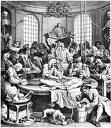

1315 In spring bad weather caused by volcanic activity in SE Asia and New Zealand leads to the Great Famine of 1315-17 (1314-22?), which kills 25% of the 30M pop. in Europe in a 400K sq. mi. area from Ireland to Italy and Russia, causing cannibalism, infanticide, disease, and crime, ending the period of growth and prosperity begun in the 11th cent.; mothers are fed their children, becoming the source of the Hansel and Gretel legend? In Apr. Walter Stewart (1296-1327), 6th high steward of Scotland marries Marjorie Carrick de Bruce (1296-1316), eldest daughter of Robert I the Bruce and 1st wife Isabella of Mar, going on to have son Robert II next year and found the House of Stewart (Stuart). *On May 9 Hugh V (b. 1282) dies without an heir, and his brother Eudes IV (1295-1350) becomes duke of Burgundy and Artois (until 1350), going on to become a patron of the arts and the Church. On May 26 after being sent by his older brother Robert I the Bruce, Edward the Bruce (1275-1318) invades Ireland, hoping to take it over for the Bruce clan, sacking Granard and Dundalk, rallying many Irish lords and quickly occupying Ulster before bogging down at the English colonial capital of Dublin; meanwhile Edward Balliol, son of King John I Balliol waits in the wings, being released from England and allowed to go to his family lands in Picardy, as murmuring begins against Robert for his favoritism in the distribution of forfeited lands, making hay of the pope's excommunication and summons of Robert to be BBQed in Rome. In July French king Louis X pub. an ordinance that Nature makes every man free, hence all slaveholders must free their slaves - but if they don't he will do what? On Aug. 29 the Battle of Montecatini in the Val di Nievole is a V for the Ghibellines of Pisa under Uguccione della Faggiuola (1250-1319) of Florence and Naples under the Angevin Philip I of Taranto (1278-1331), becoming their worst D since 1260; Philip I's eldest son Charles of Taranto and brother Count Peter Tempesta ("stormy") of Eboli (b. 1291) are KIA; Italian condottiero Uguccione della Faggiuola, the military officer controlling Florence forces the city to grant amnesty to all exiles, incl. Dante; too bad, they require that he do public penance, and he refuses, preferring exile; he later refuses new terms of house arrest, causing his death sentence to be confirmed and extended to his sons, and he never returns, preferring to wax lyrical in his "Paradisio", Ch. 17: "You shall leave everything you love most/ This is the arrow that the bow of exile shoots first/ You will know the bitter taste of others' bread, how salty, and know/ how hard a path it is for one who must use others' stairs." On Nov. 15 Swiss forces gain a great V over Duke Leopold I of Austria at the Battle of Morgarten after he tries to crush them for supporting HRE Louis IV the Bavarian against Hapsburg Frederick III the Handsome, then renew the Swiss League, getting it confirmed by Louis IV; the killer rep of the Swiss infantry is born. The city of Sardis in Asia Minor falls to the Ottomans. Sultan Alauddin of Delhi dies just as the Mongols are beginning to infiltrate the N frontiers of his Muslim domain. After the king's loan collectors piss them off with their heavy-handed tactics, the people of France successfully clamor for the return of the Jews, who had been expelled in 1306; too bad, they are expelled again in 1322. Italian immigrants in Lyons develop a silk industry. The town of Schirmeck ("protected place") in Alsace is first mentioned. The Chinese civil service exams are reinstated by the Mongols, with built-in discrimination in favor of Mongols and their non-Han supporters against the Han. Architecture: The Cordova Synagogue in Spain is built. Science: The first public human dissection is performed in Italy by Mondino de Luizzi (1258-1326), who pub. Anatomia (De Anatome), the first practical dissection manual this year, used by Euro medical schools for the next three cents. Art: Simone Martini (1284-1344), Christ's Road to Cavalry. Nonfiction: Abu al-Fida Ismail Ibn Hamwi, Concise History of Humanity (Tariah Abi al-Fida); history of the world from Creation to this year by a writer based in Mosul; continued by the author to 1329, then by Ibn al-Wardi to 1349, and by Ibn al-Shihna al-Halabi to 1403; pub. in Europe in 1754 by Reiske. Births: English count of Eu and Guines (1344-50) (constable of France) Raoul II of Brienne (d. 1350); son of Raoul I of Brienne and Jeanne de Melo. Italian sculptor Nino Pisano (d. 1368) in Pisa; son of Andrea Pisano (1290-1348). Deaths: Spanish missionary Raymond Lully (b. 1235); stoned to death in Bougie, Africa on his 3rd missionary visit to convert Muslims; leaves the Utopian novel Blanquerna; his followers (Sullists) combine a belief in alchemy with religious mysticism. French chamberlain-minister (of Philip IV) Enguerrand de Marigny (b. 1260) on Apr. 30 in Montfaucon (hanged for sorcery). French duke of Burgundy (1306-15) Hugh V (b. 1282) on May 9.
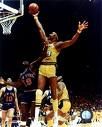
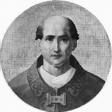

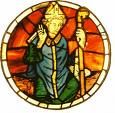




1316 On Mar. 12 Stefan Dragutin dies after becoming a monk named Teoktist, and his son Stefan Vladislav II (1280-1325) becomes king of Syrmia (until 1325), later claiming all of Serbia; meanwhile Stefan II Multin of Serbia conquers his lands around Belgrade. On Mar. 16 Cangrande della Scala officially recognizes Frederick III (did I say the Hansome?) as HRE in return for being confirmed as imperial vicar of Verona and Vicenza, pissing-off new Pope John XXII, who threatens to excommunicate him, which he ignores, going on to secure Ghibelline supremacy in W Lombardy, then launch an unsuccessful attack on Treviso in Nov. On May 1 Edward the Bruce, Earl of Carrick, with the help of native chieftains has himself crowned Edward I (1275-1318) of Ireland; too bad, Gaelic Irish clan rivalry keeps them from uniting behind him to kick the English butts' out of Ireland - it's my island, but then, I'm crazy? On May 16 John FitzThomas, Baron of Offaly is created the first Earl of Kildare for his aid to Bruce during his advance into Leinster, becoming one of the three most powerful earldoms in Ireland along with the Earl of Ormonde (James Butler) in 1328 and the Earl of Desmond (Maurice FitzGerald) in 1329. On May 31 after receiving his doctor of theology degree from the U. of Paris, Cesena, Italy-born Franciscan theologian Michael of Cesena (1270-1342) is elected minister gen. of the Naples chapter, and travels to Assisi, where he convokes a chapter to revise the order's constitutions, issuing the document Gravi qua premor on Aug. 21, advocating ecclesiastical poverty to be like Christ and his Apostles, pissing-off Pope John XXII, who pub. the bull Quorumdam exigit on Oct. 7, 1317, declaring heretical the belief that since Jesus and his disciples owned nothing, the Church should do likewise; in 1318 he orders 25 pesky poor-mouthing Franciscans tried by the Inquisition in Marseilles, and after all are found guilty of heresy, four are burnt alive by French king Philip V as incorrigible heretics, pissing-off Cesena and his supporters incl. Berengarius of Perpignan and William of Ockham, who are opposed by inquisitor John of Belna, who in a disputation in Narbonne in 1321 claims their views to be heretical; on Mar. 26, 1322 Pope John XXII pub. the bull Quia nonnunquam, distinguishing between dominion and simple use in a compromise attempt; in June 1322 a gen. chapter of the Franciscan Order is convoked in Perugia, deciding that Christ and His Apostles possessed no earthly goods; on Dec. 8, 1322 Pope John XXII pub. the bull Ad conditorem canonum, forcing the Franciscans to accept ownership of their property, reversing Pope Gregory IX, who ruled that all Franciscan property belonged to the Holy See; in 1323 Pope John XXII pronounces false the proposition that Christ and his apostles had owned no property (which was approved by Pope Nicholas III in 1279), making the Spirituals (Zealots) of the Order of St. Francis into heretics, subject to be burned by the Inquisition; in 1328 after stalling for a year, Cesena appears before the pope in Avignon, and is excommunicated, while his supporters flee to Naples but are forced by a storm to land in Pisa, and HRE Louis IV deposes the pope; on June 11, 1329 after the pope gains control of the Franciscan Order, the gen. council of the Paris chapter condemns Cesena's views, and he is deposed from his leadership position and replaced by Gerard Odon (Geraldus or Gerardus Odonis) (Guiral Ot) (1285-1349); in 1330 the pope issues the encyclical Quia vir reprobus, warning the faithful against Cesena, who accuses the pope of heresy in his letter Ad perpetuam rei memoriam innotescat quod ego, Fr. Michael on Nov. 25, 1330; on Apr. 25, 1331 the Franciscan chapter in Perpignan expels Cesena from the order and sentences him to life imprisonment, and he fights for his cause until his Nov. 29, 1342 death in Munich; he is officially rehabilitated in 1359; meaanwhile on Nov. 28, 1336 new Pope (1334-42) Benedict XII confirms Odonis' Constitutiones Benedictinae, which are abrogated by the gen. chapter in Assisi on June 1, 1343, restoring the 1260 Constitutions of Narbonne. On June 5 king (since Nov. 29, 1314) Louis X the Quarreler of France (b. 1289) dies suddenly of pleurisy caused by overindulgence in cold wine after becoming overheated playing ball, and on Nov. 15 his posth. infant son (by his 2nd wife Clemence of Hungary) Jean (John) I (b. 1316) becomes unlucky Capetian king #13, with his uncle Philip the Tall as regent, but dies after five days on Nov. 20 (oops, who left that pillow on his face?), leaving only Louis X's infant daughter (by his 1st wife Margaret of Burgundy) Jeanne, and since the Salicylic Lobby conveniently says that monarchs with PMS and no Midol yet on the market are out, a great nat. council gives the crown to Louis X's younger brother Philip V the Tall (1294-1322), who becomes Capetian king #14 (until Jan. 3, 1322), solidifying the male supremacist Salic Law excluding women from succession to the French throne; a rabid anti-Semite, Philip V makes admin. reforms and attempts to unify weights and measures to keep up with Edward I of England, but bumps up against opposition in the estates-gen; meanwhile after two years of failure to elect a new pope, he convenes a conclave of cardinals in Lyons, which on Aug. 7 elects Jacques Duese as Pope (#195) John XXII (1249-1334); when the new pope refuses to crown Louis IV the Bavarian as HRE, he starts a propaganda war, led by Marisilius of Padua (1270-1342) and William of Ockham (Occam) (1280-1347), challenging the power of the papacy and attempting to revive the prestige of the empire; Marsilius of Padua founds the Conciliar Movement (Conciliarism), which claims that a gen. council is superior to a pope, can be called by a king, and is competent to judge a pope or call a new conclave, which is given a more forceful form in 1379 by Henry of Langenstein (1325-97), gaining a large following. On June 12 after Ghibelline Uguccione della Faggiuola of Pisa, who became condottiere of Lucca, Italy in 1314 is expelled by the Lucchesi, his protege, Ghibelline Castruccio Castracani degli Antelminelli (1281-1328) is elected lord of Lucca in Tuscany, going on to build it into a rival and enemy of Florence. On Aug. 10 the Second Battle of Athenry is a devastating V for an Anglo-Irish force under Rickard de Bermingham (Rickard Mac Fheorais) (-1322), lord of Athenry and William Liath de Burgh (-1324), deputy justiciar of Ireland over the Gaels of Connacht who allied with Edward the Bruce, losing 3K-5K KIA, with 1.5K beheaded; Irish kings Fedlim O Conchoair of Connacht and Tadhg O Cellaigh of Ui Maine are KIA and their heads mounted over the town's main gate, which becomes the Athenry coat of arms. On Dec. 16 Muslim Mongol Persian khan #8 (since July 13, 1304) Oljeitu (b. 1280) dies in Soltaniyeh, leaving a magnificent tomb, and his son Abu Sa'id (Sayed) Bahador (Behauder) ("hero") (1305-35) becomes Persian Mongol Ilkhanid khan #9 (until Dec. 1, 1335), the last before the empire disintegrates. Witen dies, and his brother Gediminas (Gedymin) (1275-1341) becomes grand duke of ever-getting-mine pagan Lithuania (until Dec. 1341), building it into a Baltic-Slavic empire. Louis IV the Bavarian recognizes the independence of Switzerland from the Hapsburgs to help in his civil war with Frederick III the Handsome. After English admin. Payn de Tuberville kicks the Welsh dogs down too hard in Glamorgan, Llywelyn Bren (Llywelyn ap Gruffudd ap Rhys) (-1318), lord of Senghenydd leads a new Welsh revolt to test the fag, er, new king Edward II (ends 1318), sieging Caerphilly Castle. The county of Champagne in France (founded 956) becomes part of the royal domains; too bad, no sparkling wines until 1535. Eight Dominicans are sent to Ethiopia by Pope John XXII to check on age-old rumors of a Christian king named Prester John. Dante Alighieri accepts an offer from new Ravenna ruler (1316-22) Prince Guido II (Novello) da Polenta (-1330) to move to Ravenna, where he ends up dying and being buried in 1321. Muberak (Mubarak) Khilji (Khalji) (-1321) becomes the last Khilji ruler of Delhi (until 1320). Eight Dominicans are sent to Ethiopia by Pope John XXII to check on age-old rumors of a Christian king named Prester John. Dante Alighieri accepts an offer from new Ravenna ruler (1316-22) Prince Guido II (Novello) da Polenta (-1330) to move to Ravenna, where he ends up dying and being buried in 1321. Architecture: The Gothic Salvator Church in Duisburg is begun, later becoming the burial place of Gerardus Mercator (d. 1594). Births: Scottish Stewart king #1 (1371-90) Robert II Stewart (d. 1390) on Mar. 2 in Paisley Abbey, Renfrewshire; son of Walter Stewart (6th high steward of Scotland) (1293-1326) and Marjorie Bruce (1296-1316), eldest daughter of Robert I (1274-1329) and 1st wife Isabella of Mar (1277-96); husband (1348-) of Elizabeth Mure (Muir) (-1355), daughter of Adam of Rowallan, Ayrshire, and (1355-) Euphemia Ross (1325-87), widow of Earl John Randolph of Moray; father of Robert III (1337-1406); grows up a west-coaster, in contrast to his predecessor David II the east-coaster. Bohemian king Charles I (1347-78), king of Italy (1355-78), and HRE (1355-78) Charles (Karl) IV (d. 1378) on May 14 in Prague; eldest son of John the Blind of Luxembourg and Bohemia (1296-1346) (eldest son of HRE Henry VII) and Elisabeth I of Bohemia (1292-1330); originally named Wenceslaus (Vaclav) after her father; nephew of Charles IV of France; first Bohemian king to become HRE; fluent in Latin, Czech, German, French, and Italian; husband of Blanche of Valois, Anne of Bavaria, Anna von Schweidnitz, and Elizabeth of Pomerania; father of HRE Sigismund of Luxemburg (1368-1437), King Wenceslaus of the Romans (1361-1419), Margaret of Bohemia (Luxembourg) (1335-49), Katharine of Bohemia (1342-95), Elisabeth of Bohemia (1358-73), Anne of Bohemia (1366-94), and Margaret of Bohemia (1373-1410). Blanche (Marguerite) of Valois (d. 1348); youngest daughter of Charles of Valois (1270-1325) and 3rd wife Mahaut of Chatillon; sister of Philip VI (1293-1350); wife of HRE Charles IV. Norwegian king (1319-55) and Swedish king (1319-64) Magnus II/IV/VII Ericsson (Eriksson) (the Caresser) (d. 1374) in spring; son of Duke Erik Magnusson of Sweden and Ingeborg, daughter of Haakon V of Norway. Scottish "The Brus" poet (archdeacon of Aberdeen) John Barbour (d. 1395) (b. 1320?) in Aberdeenshire. Muslim legal scholar Muhammad ibn Arafa al-Warghami (d. 1401) in Tunis; makes urf (customary law) okay when it doesn't contradict Islamic law - is that like that kid who hacked into NORAD to play wargames? Deaths: Chinese astronomer Guo Soujing (b. 1231). Italian physician Pietro d'Abano (b. 1250) in Padua; dies before the Inquisition can try him, his friends hiding his body so well that he has to be executed in effigy. Scottish Glasgow bishop Robert Wishart (b. ?) on Nov. 26.
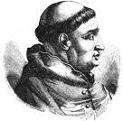

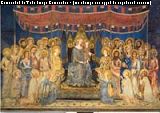
1317 Early in the year Robert I the Bruce joins his brother Edward in a winter campaign in S Ireland, in which he almost starves and his leprosy can't take the strain. On May 21 after almost beginning a siege of Guelph-held Brescia in concert with Uguccione della Faggiuola, then hearing of a plot by Padua to take Vicenza using some pissed-off exiles led by Count Vinciguerra di San Bonifacio, galloping greyhound Cangrande della Scala sneaks into Vicenza disguised as a Guelph Vincentine, talks the exiles into entering after him, then attacks them with a small force at the city gates while his partner Uguccione sandwiches them from the rear; after winning, he nurses his wounded foe Bonifacio at his palace and gives him a magnificent funeral when he dies a few weeks later; in Dec. after he accuses Padua of breaking their 1314 peace treaty, Venice (who oversaw it) declares it null and void, and Cangrande surprise-attacks the Paduan strongold of Monselica on the E slopes of the Euganean Hills and takes it on Dec. 21, then sacks and burns Este after personally plunging into the moat to lead his forces to scale the walls, causing nearby towns to surrender without a fight to save themselves; on Dec. 25 Cangrande reaches the walls of Padua, causing the great council under Jacopo da Carrara to fold and cede Monselice, Este, Castelbaldo, and Montagnana to Cangrande for life, with all citizens exiled from Padua to be restored, signing a treaty next Feb. 12, after which Cangrande makes friends with the da Carrara family, betrothing his 12-y.-o. nephew Mastino II to Jacopo's infant daughter Taddea next year. Matteo I Visconti gets his son Giovanni Visconti (1290-1354), elected archbishop of Milan, but Pope John XXII refuses to confirm him, putting Aircardus of Comodeia (-1339) in the job; never count a Visconti out? The Battle of Donibristle sees Bishop William Sinclair (William de Sancto Claro) (-1337) of Dunkeld rally the Scots to defeat an invading English force in Fife. Pope John XXII bans alchemy, and provides for the forfeiture of any gold and silver created through its practice - just in case? Architecture: The Cloth Workers' Hall in Louvain, Belgium is built for the 15K weavers that work in the region until 1382. Art: Simone Martini (1284-1344), St. Martin Renouncing the Sword; The Maesta (Maestà); The Annunciation and the Two Saints (1317-47) (with Lippo Memmi). Macedonian painters Michael and Eutychios paint fresco icons dedicated to the patron saint of the church, St. George, and to the Mother of God Pelagonitisa on the surfaces created in the iconostasis after the walling up of the intercolumnar spaces. Births: English knight Sir Michael de Poynings, 2nd Baron Poynings (d. 1369) in Bures St. Mary, Suffolk. Bulgarian Orthodox Hesychast patriarch of Turnovo (1371-93) Euthymius of Turnovo (d. 1402) (1325-1404?) in Tarnovo; disciple of Theodosius of Turnovo. Deaths: French chronicler Jean de Joinville (b. 1224) on Dec. 24 - one old fart? Thai (Sukhothai) King Ramkhamhaeng the Great (b. 1239). Chinese-born Nestorian patriarch (1281-1317) Yaballaha III (b. 1245). French House of Bourbon founder Count Robert of Clermont (b. 1256) on Feb. 7. Japanese Yamato emperor #92 (1287-98) Fushimi (b. 1265) on Oct. 8. Scottish breed mare Marjorie Bruce Stewart (b. ?); dies after falling from a horse.
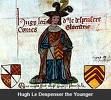
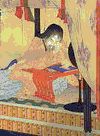

1318 On Mar. 29 after overthrowing the Kamakura shogunate in 1333 and establishing the short-lived Kenmu Restoration, Godaigo (Go-Daigo) (1288-1339) becomes Japanese Yamato emperor #96 (until Sept. 18, 1339), becoming the last emperor with power until the 1868 Meiji Restoration. In Apr. the Scots under Robert I retake the port stronghold of Berwick-upon-Tweed (held since 1296) (until 1333), and in Oct. his brother Edward the Bruce (b. 1275) brucely leaves his stronghold in Ulster without him, and on Oct. 14 is KIA at the Battle of Fochart (Faughart) (in the fog?) near Dundalk by Sir John de Bermingham, his body quartered and sent to various towns in Ireland, and his heart sent to Edward II, leaving Robert I with only three illegitimate sons, one illegitimate daughter, and 2-y.-o. grandson Robert Stewart (b. 1316), son of his daughter Marjorie and Walter the Steward, causing the Scottish parliament in Nov. to pass a decree that if he dies without a son his grandson will be crowned, and attempt to hush the murmurs by passing laws correcting some of the land settlement gripes and outlawing murmuring against the king; meanwhile hand-rubbing Edward Balliol comes to the English court after receiving news of Dundalk, and begins the Soules Plot to kill Robert I using pro-Balliol Scottish insiders and place himself on the Scottish throne (ends 1320). In Apr. a group of Franciscans led by Odoric of Pordenone (Odorico Mattiussi or Mattiuzzi) (1286-1331) incl. James of Ireland leave Padua, Italy on a mission to the East (ends 1330), taking them to Venice, Constantinople, Trebizond, Armenia, Media, Persia incl. Kashan, Yazd, Persepolis, and Shiraz, India (Thane near Mumbai), Sumatra, Java, Borneo, Champa, Guangzhou, Quanzhou, Zhejiang, Hangzhou, Nanjing, and Khanbaliq (modern-day Beijing) in 1324-7, returning via the Land of Prester John (Mongolia), Casan, Tibet, N Persia (incl. Tabriz) to Venice; in 1328 Odoric becomes the first Euro to visit Tibet - the original Pordenone's Complaint? On July 13 Persian Ilkhanid minister (since 1298) (a Jew who converted to Islam) Rashid al-Din Hamadini (b. 1247) is beheaded after his rival Amir Chupan (Choban) (-1327) gets him framed on trying to poison Oljeitu Khan, and takes his job as grand vizier. In the fall Cangrande della Scala attacks Treviso with the help of some disaffected nobles, causing the citizens to appeal to Frederick III the You Know What, who orders him to stop in return for accepting his imperial authority and allowing him to appoint an imperial vicar; despite getting backing by the Viscontis, who give him the title of "captain-rector of the imperial party of Lombardy", Freddy appoints Henry III of Gorizia (1263-1323) (at the foot of the Alps in NE Italy bordering Slovenia) next June, causing Cangrande to give up and turn on his former ally Jacopo da Carra in order to get his hands on Padua, picking a fight with him. A new faction of barons in England deposes Thomas of Lancaster; Hugh le Despenser the Younger (1286-1326), with whom bi-curious Edward II likes to have gay times becomes royal chamberlain, and begins to gain love magic control over him, aided by his bi daddy Hugh le Despenser the Elder, 1st Earl of Winchester (1261-1326), who had been a high advisor ever since the execution of Piers Gaveston in 1312, to which he had been the only objector. Roger Mortimer, 1st earl of March sieges Bristol, after which Llywelyn Bren rides out alone in his armor to surrender on condition that his rebels be spared; he is taken to the Tower of London and given to Mortimer's rival Hugh the Despenser Jr., who then takes him to Cardiff Castle and has him hanged, drawn and quartered - and some people claim that there's a woman to blame, and I know it's my own damn fault? Swiffer gives cleaning a whole new meaning? Inquisitor Jacques Fournier (1285-1342), bishop of Pamiers (future Pope Benedict XII) has fun with the remaining Cathars (Albigensians) in the village of Montaillou in the Pyrenees of S France, arresting the entire village of 250 after conducting lengthy interviews with dozens of them. After Pope John XXII declares heretical the belief that since Jesus and his disciples owned nothing, the Church should do likewise, he orders 25 pesky poor-mouthing Franciscans tried by the Inquisition at Marseilles, and after all are found guilty of heresy, four are burnt alive by French king Philip V as incorrigible heretics. Jeanne (Joan) III of Burgundy (1308-47), eldest daughter of Philip V the Tall of France and Joan II of Burgundy marries Duke Eudes (Odo) IV of Burgundy in exchange for relinquishing the right of her cousin (Eudes' niece) Joan II of Navarre (daughter of Louis XI and Margaret of Burgundy) to inherit the French throne. The Bardi of Florence begin accepting insurance risks on overland assignments of cloth. Architecture: The Cathedral of St. Andrew (St. Andrews Cathedrao) in St. Andrews, Fife, Scotland (begun 1158) is consecrated; too bad, it is sacked during the Protestant Reformation (1559). Births: Uzbekistani Sufi Naqshbandi Order founder Baha-ud-Din Naqshband Bukhari (d. 1389) in Qasir-i-Hinduvan (near Bukhara). Deaths: German architect Erwin von Steinach (b. 1244) on Jan. 17 in Strasbourg, France. Persian minister (Jewish convert to Islam) Rashid al-Din Hamadani (b. 1247) on July 13 in Soltaniyeh (beheaded); leaves the huge History of the Persian Ilkhanid Dynasty, which is handed to Muslim soldiers, after which only two fragments survive to modern times, one being auctioned by Sotheby's in 1980 for £850K, a record for an Arabic ms.; he invented fingerprinting? German minstrel-poet (mastersinger) Heinrich Frauenlob von Meissen (b. 1250) on Nov. 29 - sounds good enough to drink? French archbishop-diplomat Gilles I Aycelin de Montaigu (b. 1252) on June 23 in Rouen. Irish king (1315-18) Edward the Bruce (b. 1275) on Oct. 14 near Dundalk (KIA). English queen (1299-1307) Marguerite of France (b. 1279) on Feb. 14 in Marlborough Castle, Wiltshire.
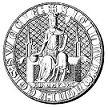
1319 On May 8 king (since 1299) Haakon V of Norway (b. 1270) dies, and on July 8 his 3-y.-o. grandson (via his daughter Ingeburga and her husband Eric, son of Magnus I of Sweden) Magnus (Smek) Ericsson (Eriksson) (1316-74) becomes king Magnus VII of Norway (until 1355) and king Magnus II/IV of Sweden (until 1364), with his mother Ingeburga as regent, and is such a momma's boy, taking a long time to rule on his own, then relying on unworthy favorites, that he causes the royal power to be weakened and the aristocratic party to fill the gap? In Aug. Cangrande della Scala invades Paduan territory and sieges Padua while sending troops to attack surrounding towns, then negotiates with Henry III of Gorizia to take it over as imperial vicar, after which Padua submits to him on Nov. 4. On Sept. 20 after the Scots under Sir James "Black" Douglas invade Yorkshire, England, reduce the town and monastery of Ripon to ashes, they an army raised by the archbishop of York and the bishop of Ely in the Chapter (Battle) of Myton (AKA the White Battle) in Myton-on-Swale, Yorkshire; Douglas goes on to continue raiding N England and laying it waste until 1327. Charles I of Hungary regains control of Belgrade from Stefan II Milutin of Serbia. Rinchan Shah briefly establishes Muslim rule in Kashmir. Granada defeats a Castilian invasion. Parts of India and Japan issue paper money (until 1331). Nonfiction: Jean de Muris (1290-1351), Ars Novae Musicae; coins the term "Ars Nova" and promotes it over Ars Antiqua; claims that a 3-fold division of time is perfect. Births: French Valois king #2 (1350-64) John (Jean) II (the Good Fellow) (d. 1364) on Apr. 16; son of Philip VI (1293-1350) and Jeanne the Lame of Burgundy (1293-1348); husband of (1332-) Bona (Bonne) of Bohemia (Luxemburg) (1315-49) (daughter of John I the Blind of Bohemia) and (1349-) Jeanne I of Auvergne (1326-60); father of Charles V (1338-80) by Bona of Bohemia. French duke of Brittany (1341-64) Charles of Blois (d. 1364) in Blois; son of Guy I of Blois-Chatillon (-1342) and Margaret of Valois (sister of Philip VI); husband (1337-) of Joanna of Dreux (1319-84). Deaths: Italian condottiero Uguccione della Faggiuola (b. 1250) on Nov. 1 in Padua. Italian painter Duccio di Buoninsegna (b. 1255).